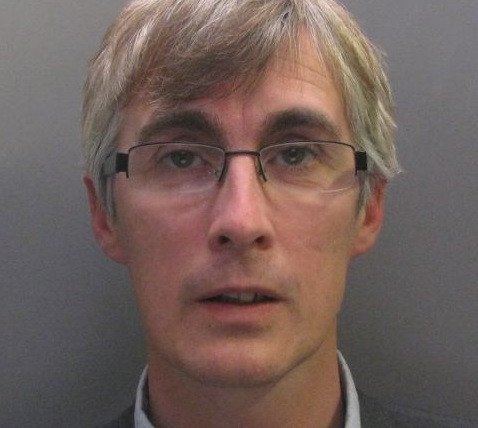Myles Bradbury: Report reveals how paedophile doctor abused children with cancer

A doctor who sexually abused children in his care as young as eight was able to avoid detection thanks to an "inadequate" chaperone policy at the hospital, a report has said. Dr Myles Bradbury, 41, a former paediatric haematologist at Addenbrooke's Hospital in Cambridge, admitted to abusing 18 victims, some of whom were suffering from cancer and leukaemia, as well as making more than 16,000 indecent images of children.
He was jailed for 22 years in December after committing what a judge described as "one of the worst forms of sexual abuse imaginable". His sentence was later reduced to 16 years, with an additional six years on licence.
A report into whether Cambridge University Hospitals NHS Foundation Trust could have prevented or identified Bradbury's offending earlier found that while no member of staff at Addenbrooke's suspected Bradbury of "unprofessional, let alone criminal behaviour", he was able to repeatedly commit the offences by getting around an unclear and not fully initiated chaperone system.
Under hospital policy, Bradbury should not have examined children under the age of 14 on their own. If a fellow healthcare worker was acting as a chaperone during an intimate examination, they would have gone behind the curtain with Bradbury and the patient. If a parent was acting as a chaperone, many times they chose not to go behind the curtain in order not to embarrass the adolescent child, with the report saying Bradbury "took advantage of this sensitivity".
However, the report found no member of staff was ever tasked with making sure this policy was enforced and were unaware he was making appointments by contacting the families directly. Staff did notice he was "reluctant" to have medical students assist him in his clinic, but they accepted his reasoning that he was "very busy" and did not like students to be present when he was having difficult conversations with families.
Bradbury deliberately and intelligently manipulated the trust of patients, formal processe, and committed staff going the extra mile for patients. This manipulation is what we must guard against.
NHS Foundation Trust
One consultant who was interviewed in the report said families were also told by Bradbury it was essential for him to see their child alone since they would be under medical care for the rest of their life and "it was very important for them to have a trust of doctors". The consultant said: "This was just totally unrecognisable as any sort of policy."
The report states: "[Bradbury] took advantage of the chaperone policy by carrying out criminal intimate examinations on patients behind the curtain with their family member in the room but on the other side of the curtain.
"The chaperone policy would have put some obstacles in his way if it had been applied, as he would not have examined children in the absence of their parents and he would have had to tell the child what he was planning to do. Parents, if they had heard this, would have been more aware of what was happening and more likely to be concerned.
"However, the lack of any specific provision for children, the lack of any reference to transition arrangements, and the apparent lack of information to patients and families about the chaperone policy, made it easy for Dr Bradbury to get round the protection it offered."
Responding to the report, David Wherrett, acting chief executive of Cambridge University Hospitals NHS Foundation Trust, said: "I want to say sorry again to our patients and families who placed their trust in Myles Bradbury during their treatment here, and instead became victims of his cold and calculating abuse.
"The report will help shape our approach to chaperoning and the management of adolescent patients transitioning into adult care, helping us put the most robust and workable practices in place. It also sets out the importance of communicating more clearly on these issues with our patients, families and staff to build a proactive and positive culture of challenge into our services.
"It is clear from the report that there was no evidence that any child, parent or carer, or member of staff, raised any concerns about Bradbury, ahead of his exclusion in November 2013. The report also found that staff on the unit were not to blame for failing to be suspicious of Bradbury. No issues were picked up via nationally approved history, reference and professional registration checks.
"This has been a deeply distressing case and the NHS must learn from it. My message to other organisations is that as well as enforcing robust policies, we need to raise awareness of much more manipulative behaviour by individuals like Bradbury. Greater rigour and checks will make it more difficult for abuse to take place. Bradbury deliberately and intelligently manipulated the trust of patients, formal processes and committed staff going the extra mile for patients. This manipulation is what we must guard against, and better communication and awareness is key to this."
© Copyright IBTimes 2025. All rights reserved.






















